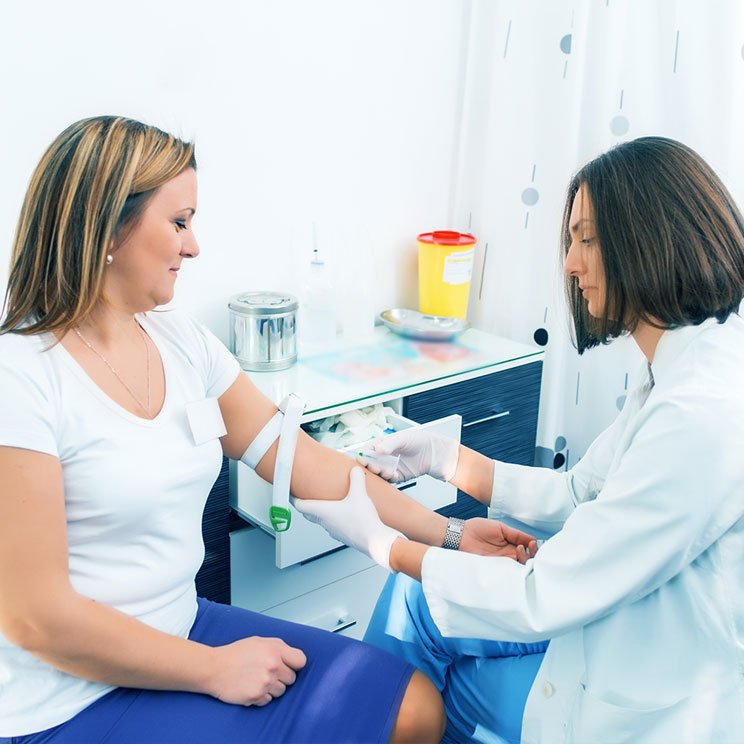
**Title: Comprehensive Guide to Phlebotomy Programs: Benefits, Requirements, and Career Opportunities**
**Introduction:**
If you have a passion for healthcare and enjoy working with patients, a career in phlebotomy may be the perfect fit for you. Phlebotomists play a crucial role in the medical field by drawing blood for various diagnostic tests, blood donations, and research purposes. To become a certified phlebotomist, you will need to complete a phlebotomy program. In this comprehensive guide, we will explore everything you need to know about phlebotomy programs, including their benefits, requirements, and career opportunities.
**Benefits of Phlebotomy Programs:**
1. **Specialized Training:** Phlebotomy programs provide specialized training in blood collection techniques, venipuncture procedures, and patient care. This hands-on training prepares students for real-world scenarios they may encounter in a clinical setting.
2. **Certification:** Upon completion of a phlebotomy program, graduates are eligible to sit for the national certification exam, such as the Certified Phlebotomy Technician (CPT) exam. Becoming certified can enhance job prospects and increase earning potential.
3. **Career Growth:** Phlebotomy is a high-demand field with job opportunities in hospitals, clinics, laboratories, blood banks, and more. By completing a phlebotomy program, you can start a rewarding career with ample opportunities for advancement.
4. **Flexible Schedules:** Many phlebotomy programs offer flexible scheduling options, including evening and weekend classes, making it easier for students to balance their education with work and other responsibilities.
**Requirements for Phlebotomy Programs:**
1. **High School Diploma or GED:** Most phlebotomy programs require applicants to have a high school diploma or GED equivalent.
2. **Background Check:** Some programs may require a criminal background check and drug screening as part of the application process.
3. **Immunizations:** Students may need to provide proof of immunizations, including hepatitis B vaccination, to participate in clinical rotations.
4. **Basic Math and Science Skills:** A strong foundation in math and science is essential for success in a phlebotomy program, as students will need to understand medical terminology and perform calculations related to blood collection.
**Career Opportunities for Certified Phlebotomists:**
1. **Phlebotomist:** The most common career path for certified phlebotomists is working as a phlebotomy technician in a hospital, clinic, or laboratory setting.
2. **Medical Assistant:** Many phlebotomists choose to advance their careers by pursuing additional training to become a medical assistant, which allows them to perform a wider range of clinical duties.
3. **Laboratory Technician:** Certified phlebotomists may also transition into roles as laboratory technicians, where they can perform tests on blood, urine, and other bodily fluids.
4. **Phlebotomy Instructor:** Experienced phlebotomists can become phlebotomy instructors, training the next generation of healthcare professionals.
**Practical Tips for Success:**
1. **Practice Venipuncture Techniques:** Developing proficiency in venipuncture techniques is crucial for success as a phlebotomist. Practice drawing blood on mannequins and classmates to improve your skills.
2. **Build Strong Communication Skills:** Phlebotomists interact with patients of all ages and backgrounds, so strong communication skills are essential. Practice listening actively and providing clear instructions to patients.
3. **Stay Current on Industry Trends:** The field of phlebotomy is constantly evolving, so it’s important to stay informed about the latest trends, technologies, and best practices in blood collection.
**Conclusion:**
Completing a phlebotomy program can open the door to a rewarding career in healthcare. With specialized training, certification opportunities, and a high demand for qualified professionals, phlebotomy offers a promising career path for those interested in patient care and clinical laboratory work. If you’re passionate about helping others and enjoy working in a fast-paced environment, consider enrolling in a phlebotomy program to start your journey towards a successful career in the medical field.